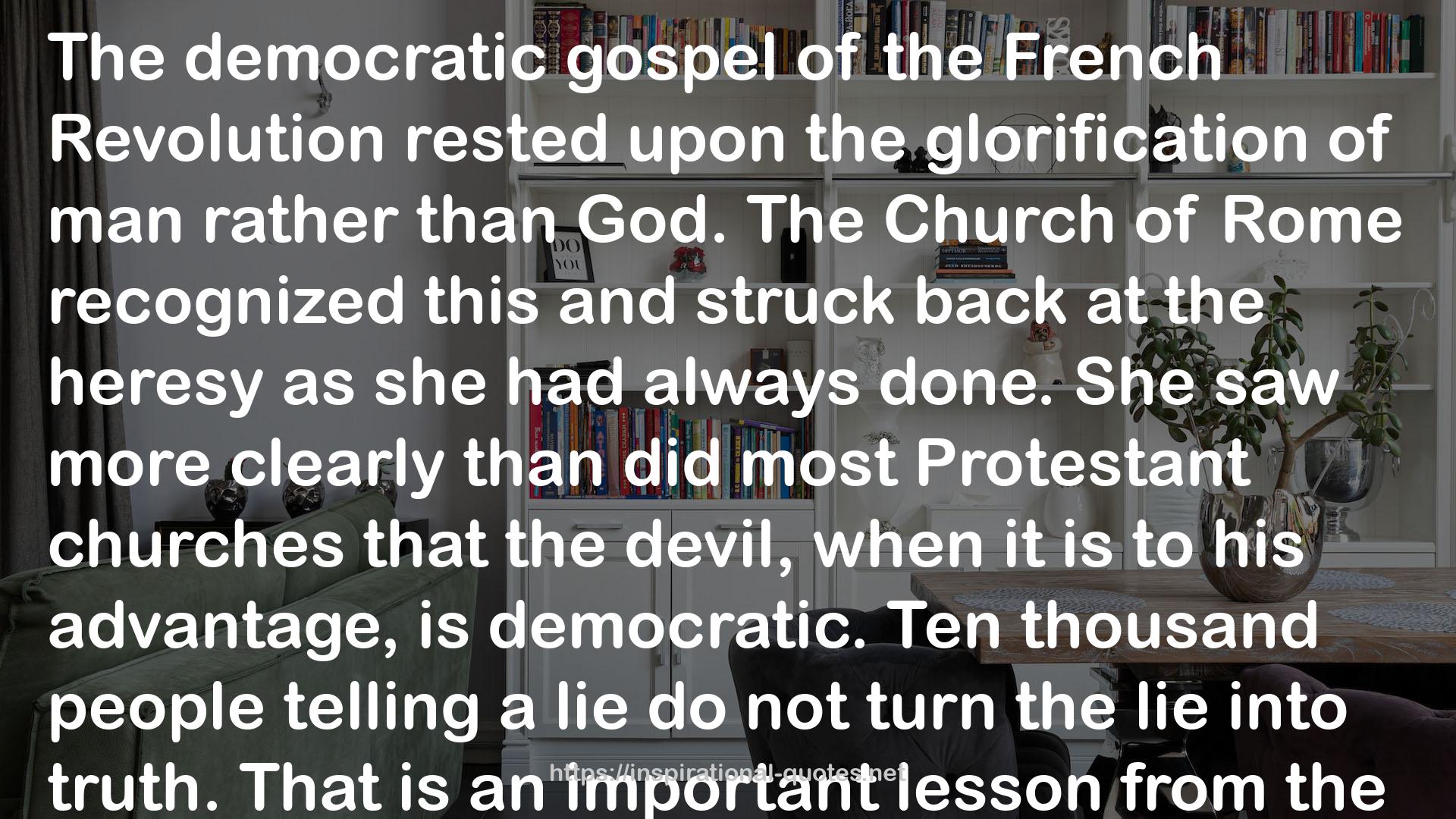" The democratic gospel of the French Revolution rested upon the glorification of man rather than God. The Church of Rome recognized this and struck back at the heresy as she had always done. She saw more clearly than did most Protestant churches that the devil, when it is to his advantage, is democratic. Ten thousand people telling a lie do not turn the lie into truth. That is an important lesson from the Age of Progress for Christians of every generation. The freedom to vote and a chance to learn do not guarantee the arrival of utopia. The Christian faith has always insisted that the flaw in human nature is more basic than any fault in man’s political or social institutions. Alexis de Tocqueville, a visitor in the United States during the nineteenth century, issued a warning in his classic study, Democracy in America. In the United States, he said, neither aristocracy nor princely tyranny exist. Yet, asked de Tocqueville, does not this unprecedented “equality of conditions” itself pose a fateful threat: the “tyranny of the majority”? In the processes of government, de Tocqueville warned, rule of the majority can mean oppression of the minority, control by erratic public moods rather than reasoned leadership. "
― Bruce L. Shelley , Church History in Plain Language
